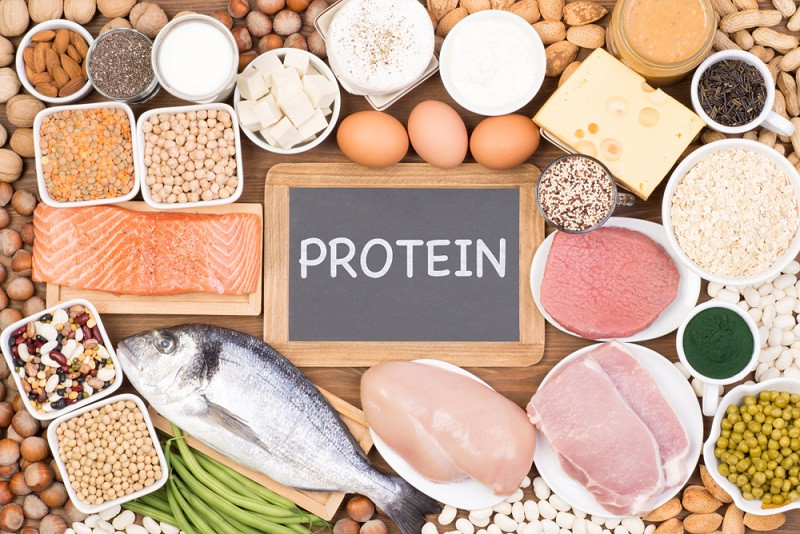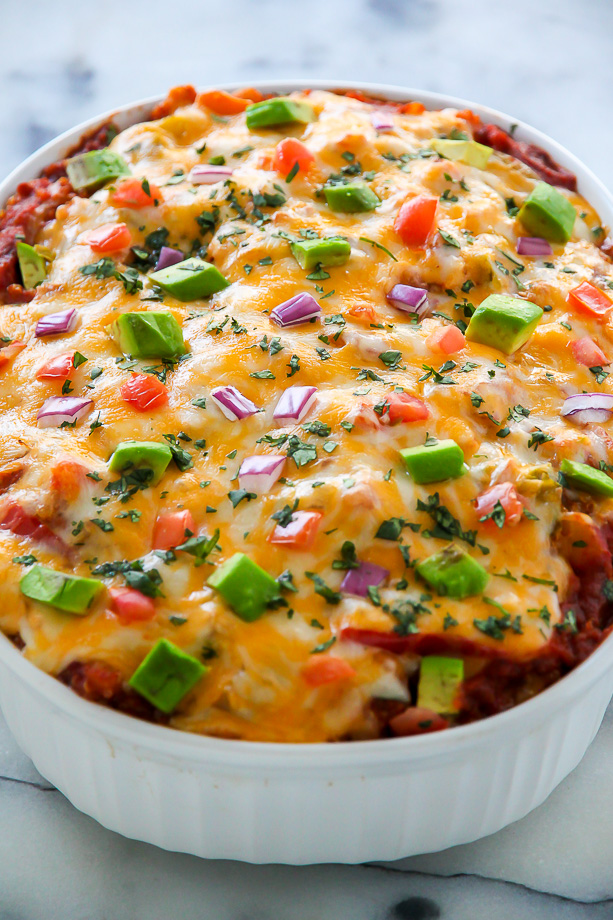Role of Proteins in Post covid recovery
Post COVID-19 Care: Role of Proteins
Any disease even if for a short period does take a toll on the body and depletes it of nutrition and hampers the immunity. It is necessary that the recuperating period largely focuses on replenishing the body through a proper diet. This holds true for COVID-19 infection too.

Any disease even if for a short period does take a toll on the body and depletes it of nutrition and hampers the immunity. It is necessary that the recuperating period largely focuses on replenishing the body through a proper diet. This holds true for COVID-19 infection too.
COVID-19 can manifest itself with absolutely no symptoms or moderate to severe with sore throat, fever, and shortness of breath. In more severe cases, complications can include acute respiratory distress syndrome, acute cardiac complications, multiple organ failure and death.
For those who have managed to beat Covid-19, they heave a sigh of relief because the worst, they say, is over. Although, for many, the road to recovery is a long one.
(https://dx.doi.org/10.3390%2Fnu13030976)
The Impact of COVID-19 in the body
The effect of the virus lasts for 14-20 days depending upon the complications and even though the virus is gone but the damage to the body has to be repaired post COVID.
Muscle wasting is the most common complication in severe cases which along with impaired immunity can prolong the recovery and increase infection risk. Even those with mild symptoms, mostly get affected by severe weakness which lasts even after the virus is gone. Loss of appetite, unable to taste or even smell and swallow are symptoms that have an impact on the diet of the patient.
(https://www.ncbi.nlm.nih.gov/pmc/articles/PMC7463687/)
Adequate Nutrition does matter
You need good food and a balanced diet not just to strengthen the immune system but also to regain the energy and stamina and keep the infections at bay till you fully recover. As Hippocrates, the Greek physician said: “Let food be thy medicine.”
Proteins to build your body back
Popularly known as the building blocks of our body and which is what they are. A diet rich in protein-rich helps to repair damaged body tissues, compensates the loss of muscles while the infection lasts and boosts the immune system back to health. Protein is also one of the best sources of energy which is essential to overcome post-COVID weakness.
(https://www.nature.com/articles/s41430-020-0664-x)
Protein intake of > 1 g/kg per day (up to 1.5 g/kg/day) is recommended depending on the nutritional status and tolerance of the individual.
(https://www.ncbi.nlm.nih.gov/pmc/articles/PMC7463687/)
Doing it right with proteins
Post COVID one must focus on food rich in quality. Hence, simply stuffing yourself with protein is not enough, the quality with regards to the amino acid content matters a lot. How much and how well you can digest and absorb protein also matters.

For e.g. When we talk about plant sources of quality protein a cup of cooked Amaranth provides 8 to 9 grams of protein and is a complete source of protein, which means it has all the essential amino acids present.
Quinoa which is rich in fiber and protein (8 g/ cup cooked quinoa) is one of the few plant foods that contain sufficient amounts of all nine essential amino acids. It is also high in magnesium, B vitamins, iron, potassium, calcium, phosphorus, vitamin E and various beneficial antioxidants which helps in reducing the inflammation caused due to COVID-19 and helps boost the immune system.
(https://www.healthline.com/nutrition/11-proven-benefits-of-quinoa#TOC_TITLE_HDR_11)
Adding protein to the diet
Spread the intake of protein throughout the day for better utilization by the body. Have an egg or paneer bhurji for breakfast, dal or khichdi for lunch and chicken or soy nuggets for dinner.
For snacks choose a combination, dry fruits with nuts, fruits with yoghurt, dahi with sprouts etc. or you can also consider GRD Bix/Lite: Wholesome Protein Snacks
Use combination of cereals and pulses for compensating the lack of one or more essential amino acids.
Use protein powders and supplements under the guidance of a nutritionist for quick and easy sources when eating food becomes a difficult task.
(http://idaindia.com/wp-content/uploads/2020/05/Nutrition-Guidelines-for-COVID-19-Patients.pdf)
Traditional route to building Immunity
Since ancient times, the medicinal properties of herbs and spices were well known. Ginger, garlic, tulsi, turmeric, methi have anti-inflammatory properties and build your immunity. Turmeric milk, ginger tea, kadha with a concoction of herbs and spices not just elevates your energy levels but also strengthens the immune response. (https://www.ncbi.nlm.nih.gov/pmc/articles/PMC7532351/)
Apart from including these herbs and spices in your diet, follow a few dietary guidelines for a quick and healthy recovery post COVID.
Eat a high calorie, high protein diet
Try eating small and frequent meals throughout the day.
Eat nutrient rich foods.
opt for nutritional supplements between meals to increase your nutrition intake.
(http://www.nutritioncare.org/covid19/)
Takeaway
Even though you have recovered from COVID-19, there still exists the need to adhere to a healthy lifestyle and strict diet. Coronavirus disrupts your immunity and hence it becomes important to focus on healthy foods to trigger the immune system back and also to deal with the aftermath of the infection which drains out all your physical and mental energy.
Proteins have a key role to play in the post COVID phase. They repair the damage the body has faced, including the immune system and loss of muscles. Good quality proteins from the diet and supplements like protein powder along with vitamins and minerals are recommended to speed up the recovery process.
Since protein requirement is essential copying with post covid recovery GRD protein products can help in post covid infection recovery as they have good amino acid profile and can be easily added to the in the diet plan as snacks or small fillers for constant supply of right nutrients.
Few recipes attached below can be helpful along with GRD protein products to make post covid recovery sail through.
Quinoa Casserole (Serves 2-3)
A one pot meal filled with good proteins and flavour!

Ingredients
1 cup Quinoa
1 tbsp olive oil
3 cloves Garlic, minced
1-2 Green Chilies’ , finely chopped
1 ½ cup vegetable broth /stock
1 cup Rajma (Large Kidney Beans), (or any beans) overnight soaked and cooked
1 red bell pepper, finely chopped
1 yellow bell pepper , finely chopped
2 medium tomatoes , diced
1 teaspoon red chilli powder
½ tsp cumin powder
Salt to taste
Black pepper to taste
Juice of 1 lemon
2-3 tbsp chopped coriander leaves
Method
Heat olive oil in a large skillet. Add garlic and green chilies, and cook, stirring frequently, about 1 minute.
Add the chopped bell peppers, sprinkle some salt and stir fry on medium heat until the peppers have slightly softened.
Once cooked, add in the chopped tomatoes and the cooked beans and cook until softened.
Add the quinoa, chili powder and cumin powder to the mixture. Sauté for a few minutes. Add the hot vegetable stock, stir and season with salt and black pepper to taste.
Bring the brown rice and quinoa mixture to a boil once over medium flame.
Once it comes to a brisk boil, cover with the lid, reduce heat and cook until water is absorbed and it is cooked.
Turn off the heat at this stage and allow it to rest for about 5 minutes.
Remove the lid and fluff the quinoa with a fork. Add the lemon juice and chopped coriander and stir gently.
Serve hot in a casserole with chilled yoghurt raita.
Nutritional Information (per 100 gms)
Energy | 103 kcal |
Carbohydrates | 13.1 gms |
Protein | 4.4 gms |
Fat | 3.4 gm |
Fiber | 4 gms |

Comments
Post a Comment